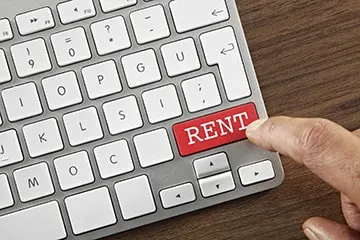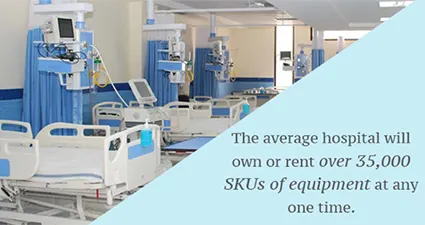Why Should Your Healthcare Facility Consider Renting Hospital Equipment?

The average hospital will own or rent over 35,000 SKUs of equipment at any one time. Hospital equipment ranges in size, cost, availability, and functionality, but the one thing in common is - all equipment needs to work correctly 100% of the time. Because of this, many healthcare facilities are choosing to rent their hospital equipment, such as infusion systems and syringe pumps. It ensures that they always have the right equipment on hand.
Before you determine whether or not hospital equipment rental is right for your facility, it's important to understand the full range of advantages that are typically included in equipment rental. Here are just a few reasons to consider renting.
Fewer Repairs
As mentioned, equipment rentals are well-maintained and certified, meaning they'll usually last longer without needing maintenance or repairs. This is similar to the reason drivers lease their vehicles -- they don't want to deal with costly repairs that become necessary after excess mileage and wear and tear. The same principle applies in a healthcare setting with hospital equipment: newer equipment translates to less maintenance and more reliability.
Furthermore, if something does happen to go wrong or malfunction with any equipment rental, most companies will cover the repairs under their rentals' warranties and insurance policies. Many even offer extended coverage for ultimate peace of mind.
Assess Newer Equipment
Depending on the length of your rental, you can rest assured that your medical facility will be equipped with some of the most up-to-date technology within the industry. You won't have to deal with equipment that may be growing obsolete due to subsequent technological upgrades.
Renting equipment can give you the ability to assess before purchasing. When the rate of medical device technology introductions and upgrades seem to be surpassing the bullet trains in Japan; it is difficult to know whether the latest or most significant new technology will increase patient census, or reduce costs and improve outcomes. Through renting medical equipment the facilities can assess if it will impact any of these initiatives that are so critical to healthcare. Renting before buying may be a way to determine the potential ROI and fit.
Inclusion Of Training/Additional Resources

Finally, renting hospital equipment often comes with the added benefit of training resources designed to help those who will be using the equipment use it correctly. This can be in the form of videos, web materials, or written resources, and they can usually be easily distributed to those who need the information. These training resources can be exceedingly helpful in ensuring proper usage and minimizing user-related equipment malfunctions.
Ultimately, understanding the reasons to consider hospital equipment rental is key to determining whether or not it can be an asset to your medical facility.
